The Coolest Games We've Played At Summer Game Fest 2025
<p><img loading="lazy" src="https://www.gameinformer.com/sites/default/files/styles/body_default/public/2025/06/07/36ba20a5/img_1938.jpg" width="800" height="450" alt="" typeof="foaf:Image" class="image-style-body-default" /></p> <p>Summer Game Fest Play Days is in full swing, and a few of us are on-site in Los Angeles playing a ton of games. From highly anticipated triple-A titles to indie hidden gems and everything between, we're spending three days getting our hands on the coolest-looking upcoming games to share with our readers. Check out our evolving list of the most promising titles we've played – and that you should keep an eye on – which will be updated as the event progresses. </p>
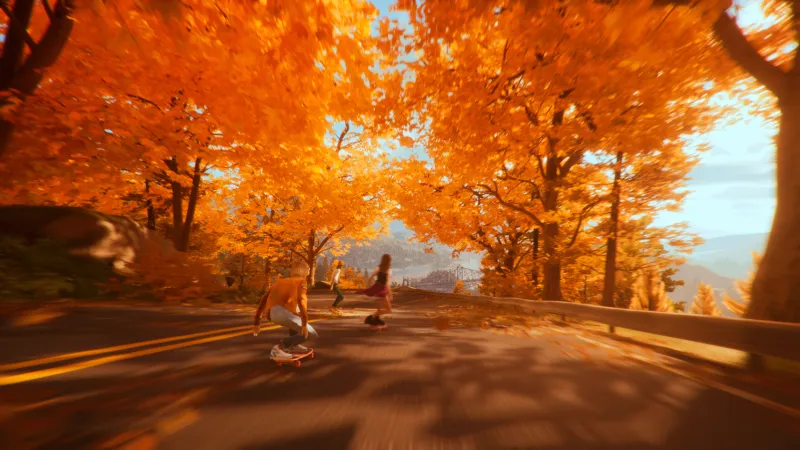
Mixtape
I love a game with a strong personality, and it's rare to find one with as much personality as Mixtape's opening moments. Set in the 90s, a teenager named Stacy Rockford has dreams of becoming a Music Supervisor in Hollywood, thanks to her passion for creating carefully curated mixtapes. She addresses the camera Ferris Bueller-style, setting up the game's events and fully breaking the fourth wall. Before each musical sequence, of which there are many, she says the name of the song, the name of the band, and the year it came out, teeing things up perfectly.
The demo itself is sort of like a collection of interactive music videos, threading the needle between cinema and gameplay, but always keeping it interesting. A straightforward song has the three protagonists rocking out in a car, and you can press a button to make them nod their heads or play an air guitar. As the montage follows their road trip, there are more little ways for them to dance along, like honking the horn, slapping the side of the car, or flashing the lights on and off. They can also be much more involved, like an intense chase sequence where you avoid police cars by racing down hills in a shopping cart. Narrative adventure games are hard to make into demos, so I was deeply impressed with my time playing Mixtape and it's shot up the list to be one of my most anticipated games of the year. - Charles Harte
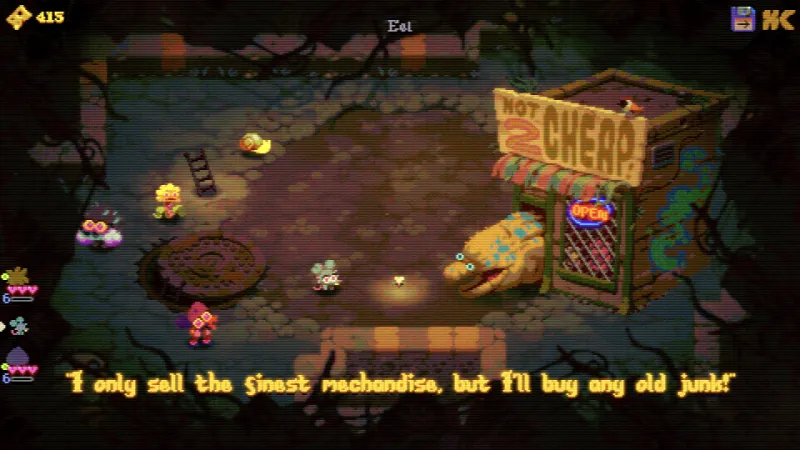
Morsels
This top-down, twin-stick roguelike is a delightfully weird fusion of The Binding of Issac, Spelunky, and Pokémon. You play as a little mouse who can turn into Morsels, odd little creatures like a grub, pile of dung, or sunflower with abilities to help you fight back against oppressive cats. Play as a Morsel enough and it'll evolve, but if you level one up too much, it dies. Morsels also don't share health, so there are simultaneously different sets of abilities and the number of lives. You can have up to three Morsels in your roster at once, so it's an interesting balancing act to swap between them to get a strategic team.
The world is also full of secrets, challenges, and bizarrely designed monsters. In an early stage, I grab a ticket stub on the ground, but I lose it by the time I get to a My Neighbor Totoro-style living bus that asks for it at a later area. There are also plenty of little holes in the wall to find secrets within, not to mention the other morsels with different abilities you can encounter. After making it to the end and defeating the first boss, I can't wait to play the full game and collect as many weird guys as I can get my hands on. You can try it for yourself right now by downloading its Steam Next Fest demo. - Charles Harte
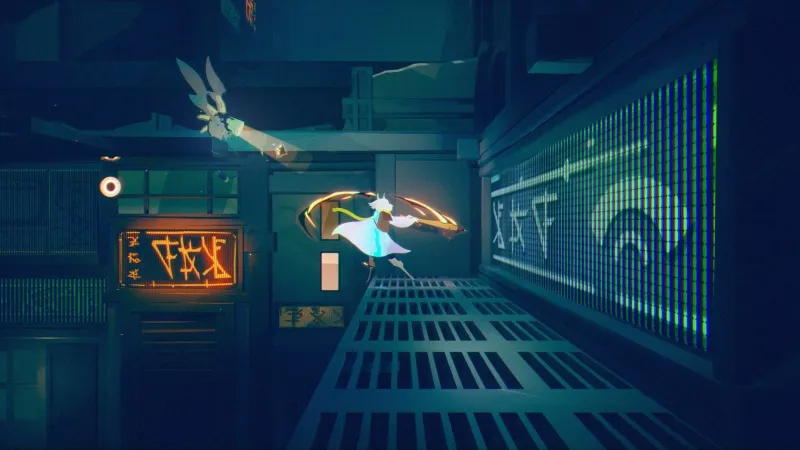
Possessor(s)
Possessor(s) is the next game by Heart Machine, the team behind Hyper Light Drifter, Solar Ash, and the Early Access Hyper Light Breaker. As a fan of the studio, I was excited to play this 2D action Metroidvania (or, as they dub it, a “search action" game), and my enthusiasm was rewarded with a slick and entertaining experience. Players control a girl named Luca, who becomes severely injured when her city is rocked by a cataclysmic event, causing her to lose her legs. She’s “rescued” by a demon named Rehm, who possesses her body, granting her demonic abilities and a new pair of legs.
The two must work together to find the truth behind the disaster in a choice-driven story featuring branching narratives. The combo-driven combat is fast-paced yet weighty, as every strike feels satisfyingly impactful. I had a good time tearing through demons, launching them in the air to juggle them, or using a whip to yank airborne targets within arms’ reach. Platforming feels good, if a bit stiff when performing actions like wall-jumping and ledge grabbing, but I wanted to uncover every secret of this ruined world. Possessor(s) is Heart Machine returning to its 2D action roots, and the results are promising thus far. You don’t have to take my word for it, however, as a free demo is available now on Steam. - Marcus Stewart
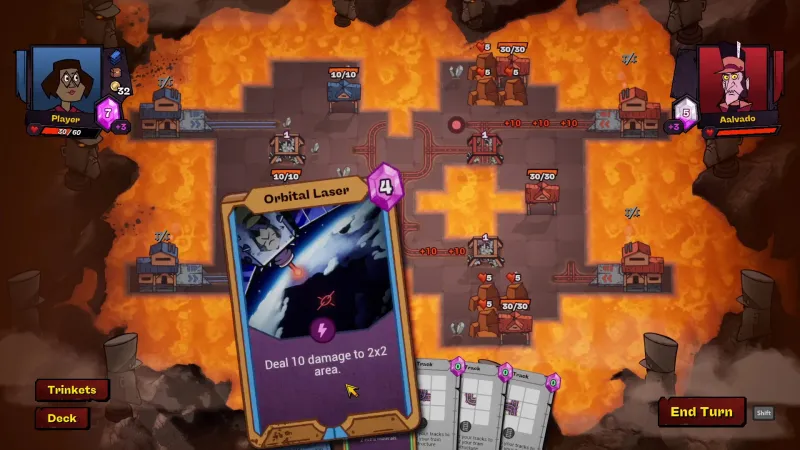
Battle Train
The roguelite deck-builder subgenre is saturated, but after completing an introductory run and boss fight, I walked away from my time with Battle Train eager to play more. After picking one of several game show contestants, each adding two unique cards to the deck, you’ll battle an opponent across a grid-based map by placing cards to build railways to collide your trains with enemy bases. Specialty cards may include bombs that destroy tracks or walls to block critical paths and more flamboyant ones that involve more complex tactics. Defeat enemy champions to unlock new train parts or spend your hard-earned money at shops to expand your deck during runs. - Alex Van Aken
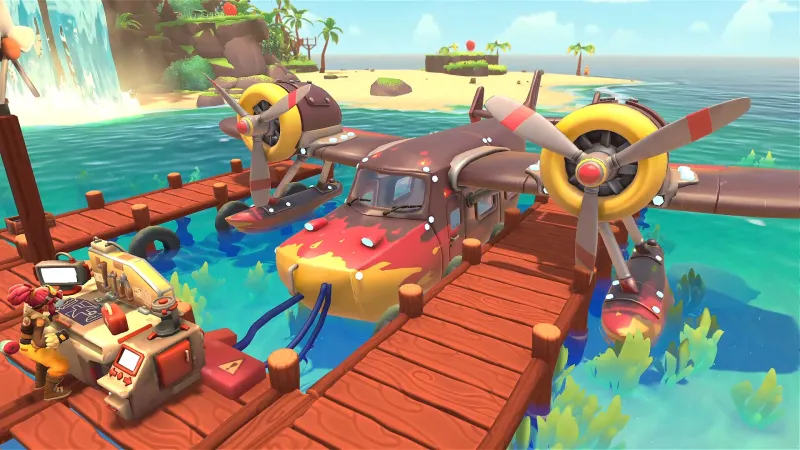
Lou's Lagoon
Developer Tiny Roar's cozy exploration title, Lou's Lagoon, follows the protagonist's search for her missing uncle. Explore the skies of a varied archipelago with a customizable seaplane, full of races and storms to navigate, before landing on an island cluster to explore on foot. Armed with a vacuum-like device called The Swirler, the player can harvest resources from local flora and fauna (i.e., wool from a llama) to complete quests, build structures, craft housing decorations, or rebuild dilapidated structures to explore previously out-of-reach areas. Despite the jumping physics leaving a bit to be desired, the paraglider is a satisfying tool for touring cozy, stylized island environments. - Alex Van Aken
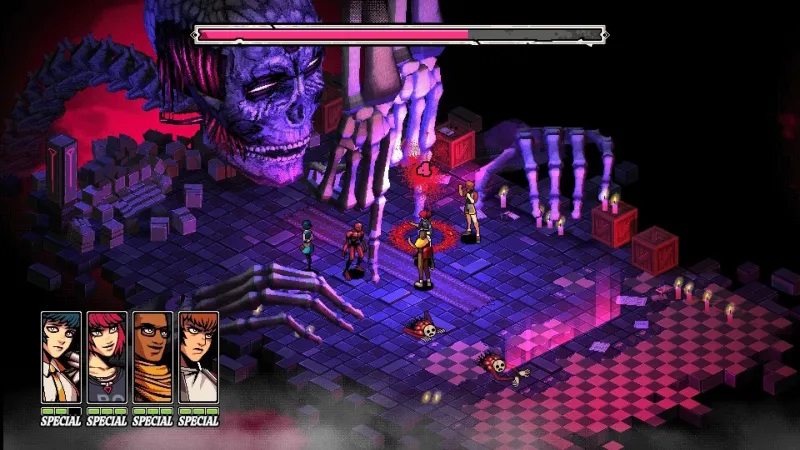
Demonschool
If you’re a turn-based tactics fan, particularly of Into the Breach, you should put Demonschool on your radar. The game stars a group of teens battling demons, which unfolds in grid-based tactics encounters. For each turn, you plot your entire party’s moves based on telegraphed enemy attacks, which let you know who’s hitting whom and from where. You have limited Action Points (AP) to spend on movement, basic attacks, and special abilities, but you can rewind turns freely if you change your mind.
The goal is to optimize each turn so you deal with as much punishment as possible while avoiding incoming attacks. Disrupt enemy formations, including pushing targets into the firing range of their comrades’ attacks, or swap tiles with them. Sandwiching targets between foes unleashes tag-team synergy attacks, and each party member sports a powerful special attack (unlocked after building a meter). Demonschool feels as much like a puzzle game as it does a strategy, and each turn is an engrossing exercise of plotting the best turns. Watching a turn play out in real-time is a satisfying example of the phrase, “I love it when a plan comes together.” - Marcus Stewart